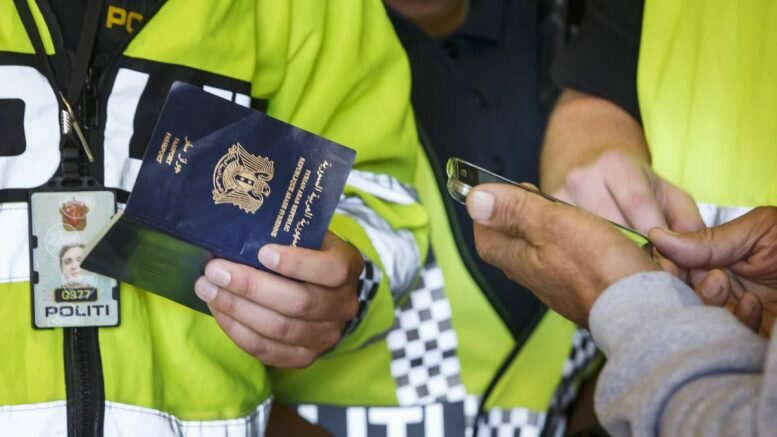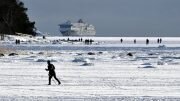To limit the risk of transmitting the significantly more contagious variant of the coronavirus, the Norwegian government is imposing far stricter rules on foreign nationals who seek entry to Norway.
In general, only foreign nationals who reside in Norway will be permitted to enter.
“We have continually tightened and eased restrictions as warranted by the changing infection situation. With the more contagious variant of the coronavirus now spreading, we find it necessary to introduce the most severe entry restrictions we have had since March of last year.
“We must limit the number of visitors to Norway as much as possible for a limited period. I understand that the consequences will be significant for many people, but curtailing the risk of importing the infection makes this action necessary,” Prime Minister Erna Solberg said.
The enhanced restrictions result from recommendations issued by the Norwegian Directorate of Health and the National Institute of Public Health (FHI).
The changes will take effect at 12:00 AM on Friday, January 29, 2021.
Very strict entry rules
“We have seen other countries go from low infection rates to uncontrolled spread in just a few weeks, as in Ireland. For children and young people and for workplaces and society in general, the ramifications of having to shut down again for a long period are considerable.
“Thanks to our shared efforts after Christmas, the degree of contagion in Norway has generally decreased, giving us an edge as we take on this new variant of the virus. Having borders that are practically closed will help us to maintain this advantage,” Minister of Health and Care Services Bent Høie said.
Norway is already among the countries in Europe with the strictest entry rules, and access for foreign nationals from outside the European Economic Area (EEA) is already strictly limited.
A large proportion of people now traveling into Norway come from other EEA countries. To achieve the desired effect, it is necessary to limit travel within the EEA by placing restrictions on the free movement of persons.
The new entry rules are in addition to an extensive border control system that includes requirements of a negative coronavirus test result prior to arrival in Norway, registration of each traveler’s purpose for entering and intended place of quarantine, mandatory testing at the border, and legally mandated quarantine.
Access to the country
“The new restrictions are quite exacting, and the government will reassess them in two weeks. We want to cooperate productively with the employer and employee organizations to find workable solutions within the bounds of a strict regime, and to be able to adjust measures if necessary,” Minister of Justice and Public Security Monica Mæland said.
The following groups of people no longer have access to the country:
- foreign nationals residing in the EEA and EEA nationals residing in third countries (unless covered by exemptions that also apply to third-country nationals);
- family members apart from nuclear families in which the children are minors, for both EEA nationals and others, meaning that grandparents, adult children, parents of adult children, and romantic partners may no longer visit;
- foreign nationals from countries outside the EEA who are granted a residence permit in connection with work or study, including as a seasonal worker or student;
- a foreign national who is to work with film or series production or as a researcher who is exempt from the requirement of a residence permit.
Exemptions are still provided for some groups. Groups with permission to enter include:
- foreign nationals who reside in Norway;
- foreign nationals for whom special reasons indicate they should be granted the right to enter, such as specific care responsibilities for persons in Norway or other compelling welfare considerations;
- foreign nationals who are to carry out agreed or formalized parent-child contact;
- close family members of persons residing in Norway, i.e., spouses/registered partners/cohabitants, minor children or stepchildren, parents or stepparents of minor children or stepchildren;
- journalists and other personnel on assignment for a foreign media institution;
- foreign nationals who plan an airport stopover in Norway (both in international airport transit and within Schengen);
- seafarers and aviation personnel;
- foreign nationals who perform commercial transport of goods and passengers;
- foreign nationals who work in critical public functions;
- health personnel from Sweden and Finland who work in the Norwegian health and care services.
The following list prepared by the Directorate for Civil Protection may be used as a starting point in determining which public functions are considered critical:
- Administration and crisis management
- Defense
- Law and order
- Health and care services, including pharmacy and maintenance
- Rescue service
- Digital security in the civilian sector
- Nature and the environment
- Security of supply
- Water and wastewater
- Financial services
- Power supply
- Electronic communications
- Transport
- Satellite-based services
The testing, travel registration, quarantine, and quarantine hotel requirements will remain in force for travelers who are exempt from the entry restrictions.
To be clear, all Norwegian nationals may continue to travel into Norway.
Foreign nationals who have already begun a journey to Norway before the restrictions take effect will be granted entry.
Source: Office of the Prime Minister / Ministry of Health and Care Services / Ministry of Justice and Public Security #Norway Today, #NorwayTodayNews
Do you have a news tip for Norway Today? We want to hear it. Get in touch at [email protected]






Leave a comment